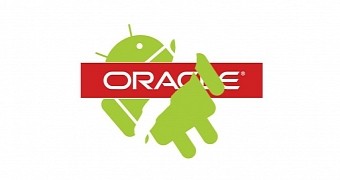Oracle first filed a lawsuit against Google back in 2010, accusing the search giant of copying some of the basic Java programming interfaces into Android. Since then, Google has rolled out six major versions of the OS.
This week, we hear of a new development in the feud between the two companies. Now Oracle is seeking to update its lawsuit in order to reflect the major gains Google made with Android in the five years since the lawsuit started, reports Reuters.
The high-profile case revolves around how much copyright protection should extend to the Java programming language, which Google used to design and set up its Android mobile operating system.
Oracle is now seeking roughly $1 billion from Google in copyright claims. By updating the copyright lawsuit, Oracle will be able to add that the search giant continues its copyright infringement through updated versions of Android in existing and new markets. This in turn results in harm to Oracle and more benefit for Google.
“It is in 80% of smartphones, in tablets, in televisions, on wearables, and even in cars. Android now has a billion users. Google reaps untold profit from these users through a variety of means,” Oracle’s lawyers state.
Oracle becomes more aggressive in its approach
The new facts have a good chance of strengthening Oracle’s case against Google, or at least that’s what the former company is hoping for.
Two years ago, a jury in San Francisco decided that Google infringed Oracle’s copyright but couldn’t make a decision on the matter of fair use.
In the meantime, the judge presiding the case, William Alsup, concluded that Oracle’s Java programming interfaces weren’t actually eligible for copyright protection laws, thus voiding the jury’s verdict altogether.
But Oracle appealed the decision and finally managed to obtain a favorable ruling which stated that Java’s APIs were creative works worthy of protection.
Google, for its part, tried to take the case all the way up to the Supreme Court, but last month it was announced that the court refused to hear the case.
The Mountain View-based company maintains its position that it should be able to use Java without paying a buck.
Neither Google nor Oracle representatives made any comments on the latest developments in the situation.

 14 DAY TRIAL //
14 DAY TRIAL //